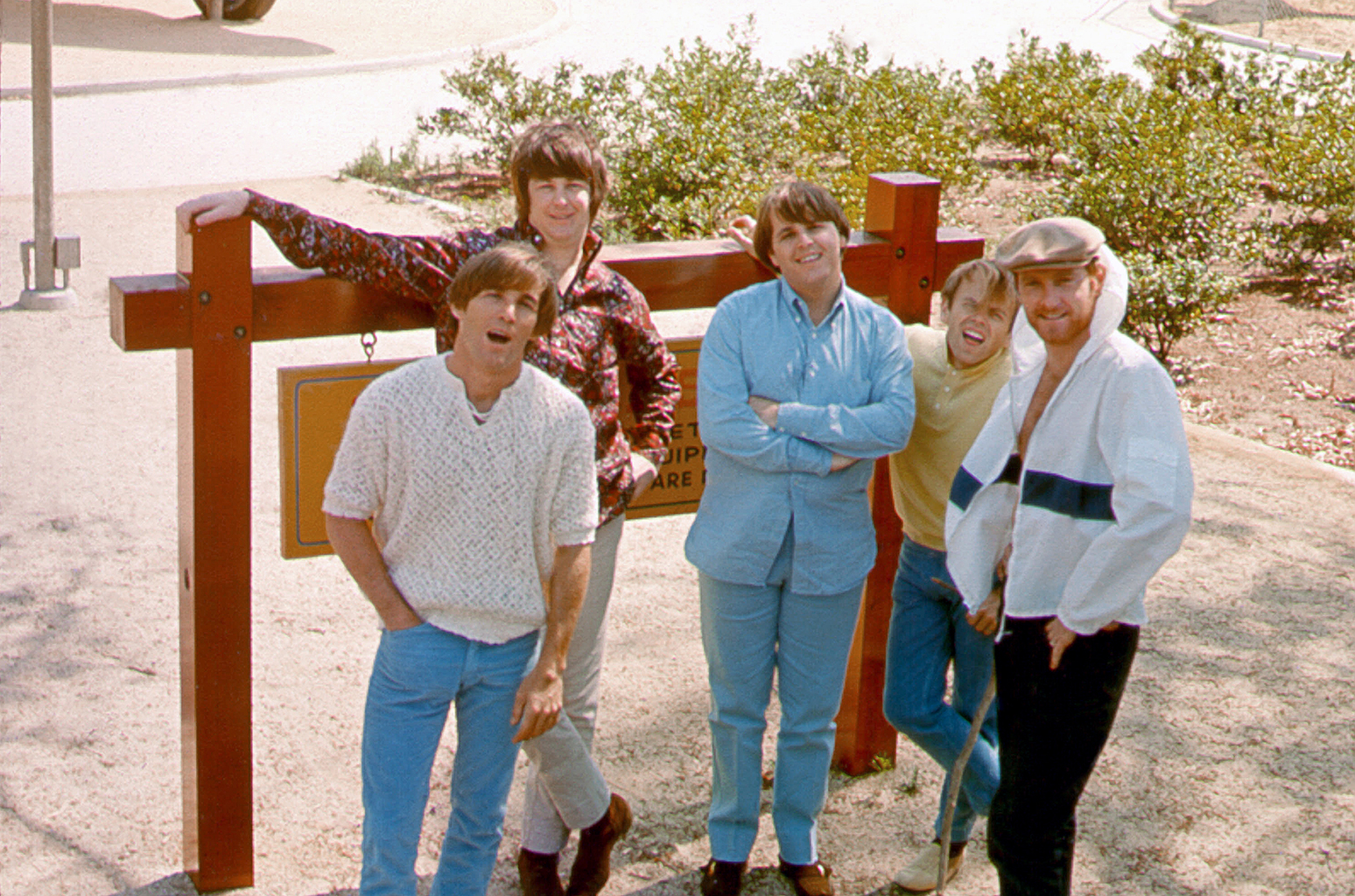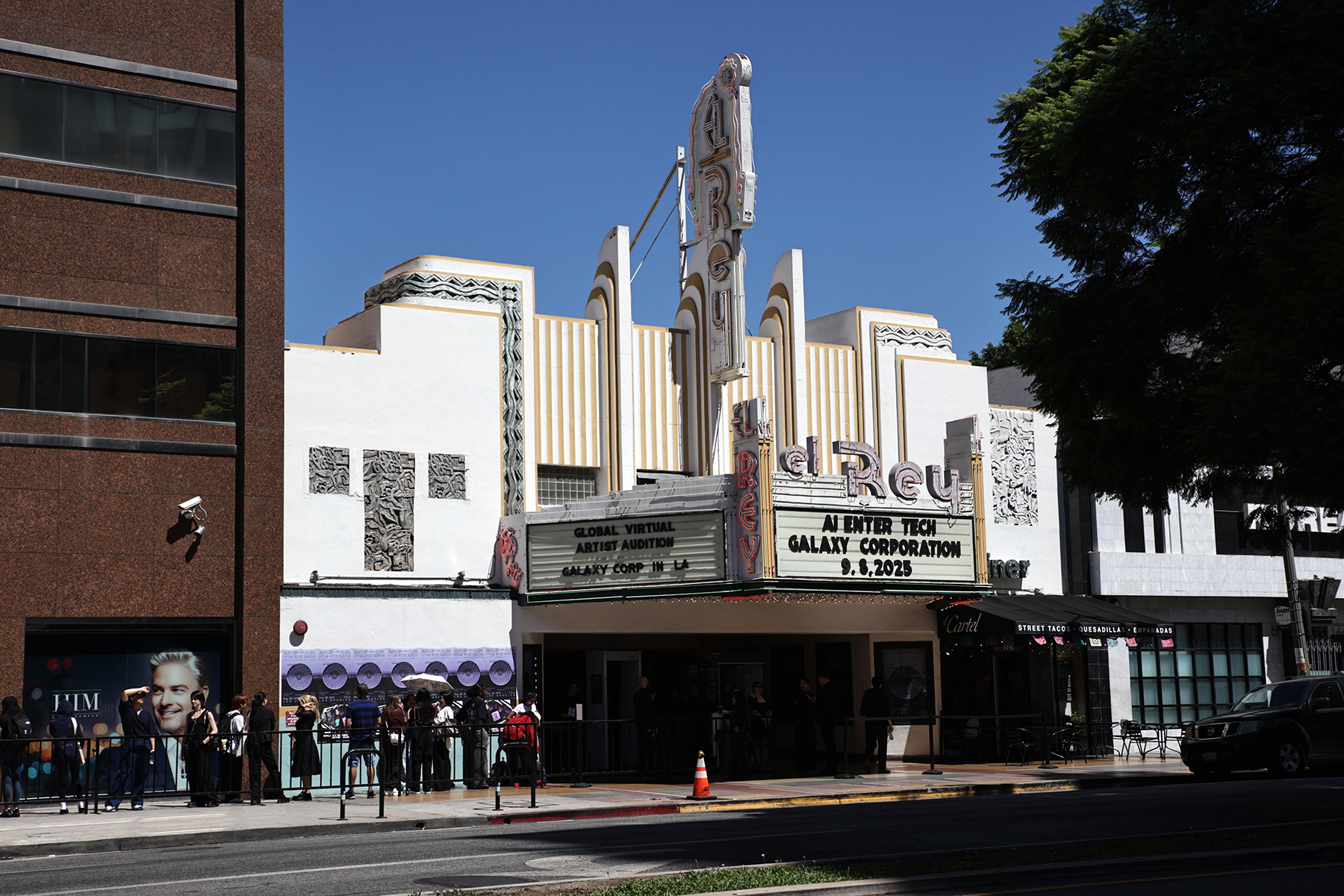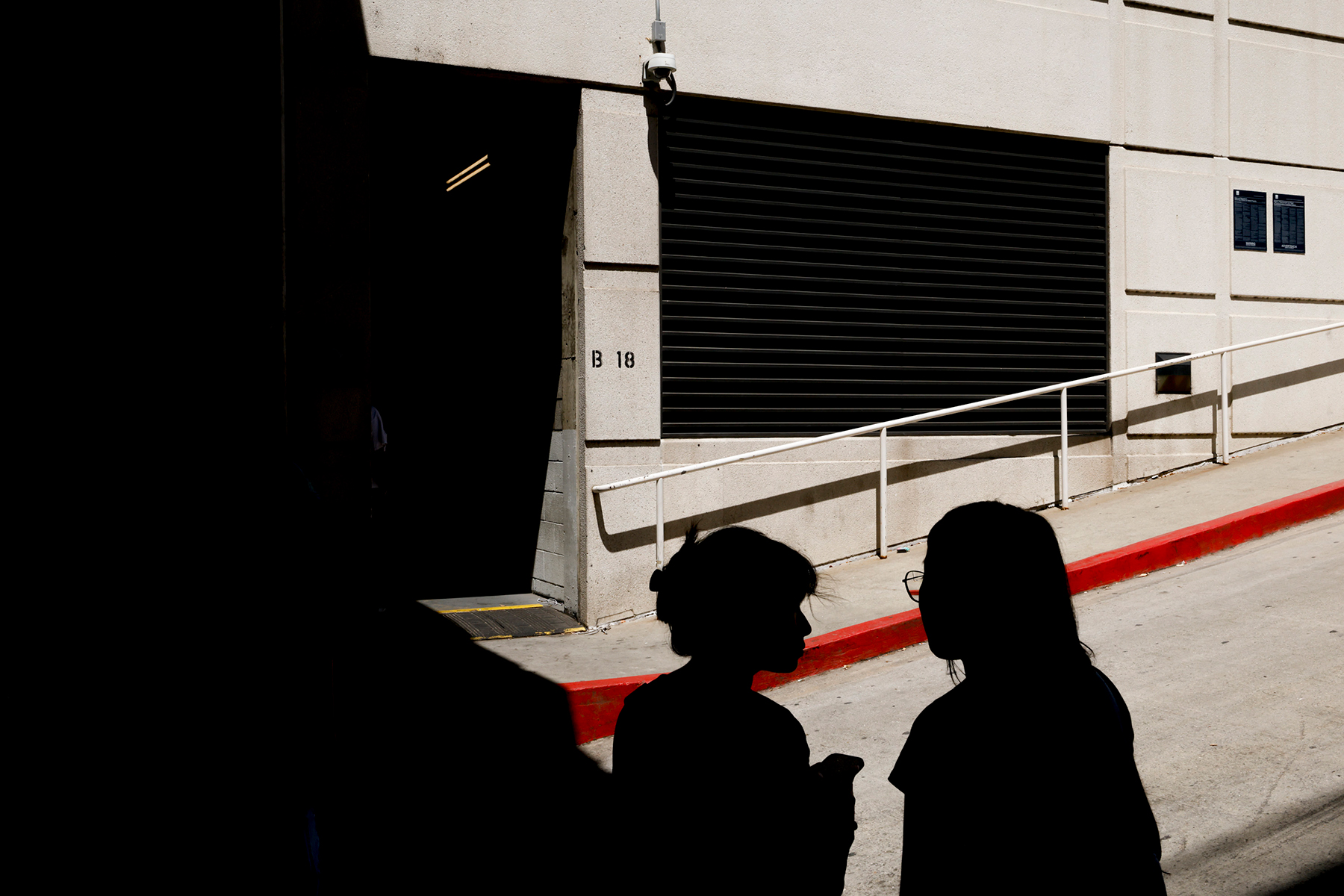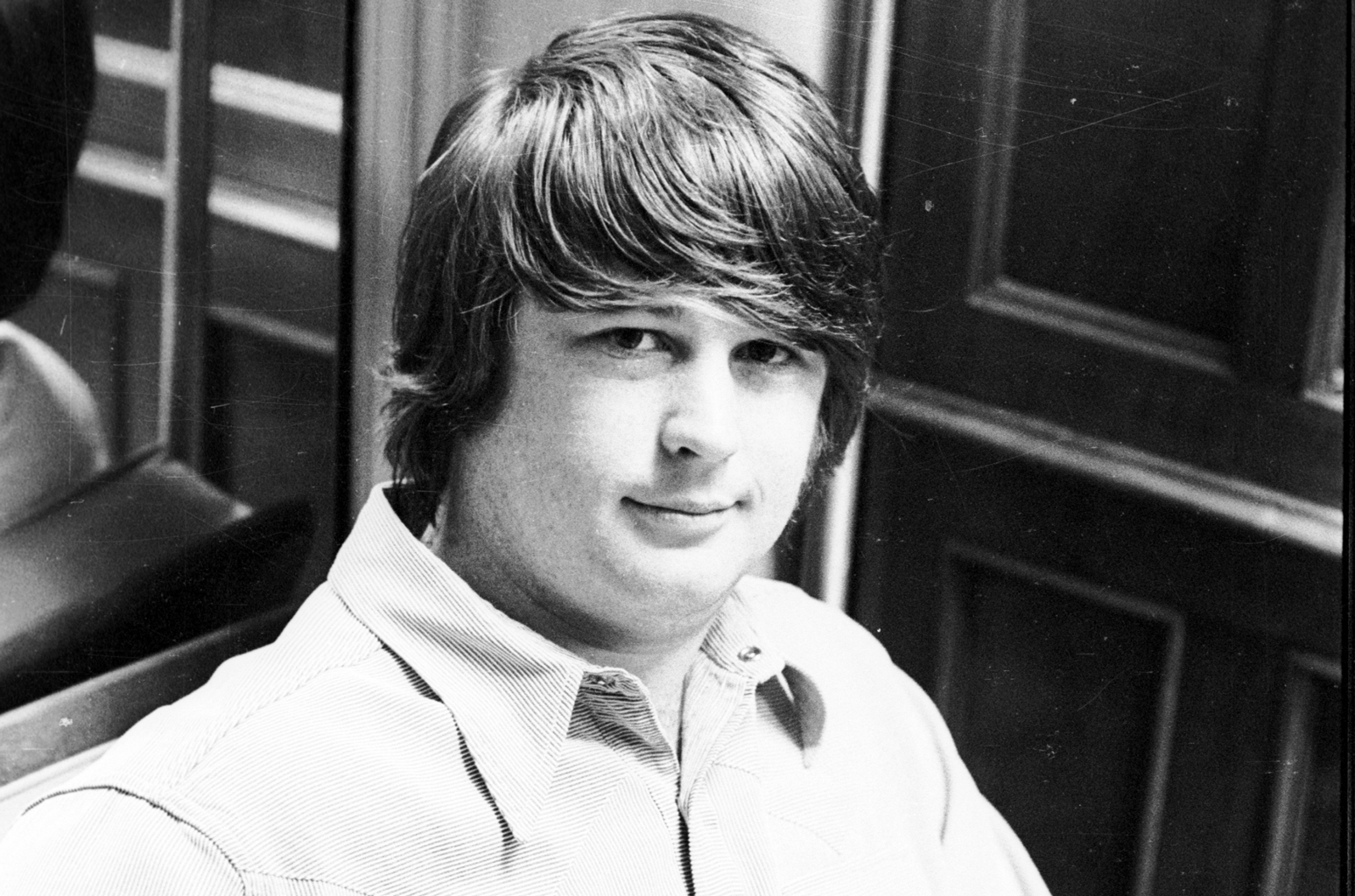Entertainment
How Visa Issues Are Threatening Artists’ Careers — And the Music Companies That Work With Them

Just a day before his sold-out show at the AT&T Stadium in Texas, regional Mexican star Julión Álvarez posted an “urgent” announcement on his social media, informing the 50,000 fans who purchased a ticket to the May 24-dated show that it was cancelled.
The reason: Álvarez’s work visa had been revoked and the artist could no longer legally enter the United States. The last-minute cancellation not only led to a total loss of over $2 million that went into the production of the event, but it also derailed an entire promotional plan that had successfully launched a month before with three sold-out dates at SoFi Stadium in L.A., marking the long-awaited return of the norteño artist. The “Box Office King,” who hadn’t performed in the U.S. since 2017, was once again sidelined by visa issues. To this day, his highly anticipated 4218 Tour USA 2025 remains in limbo.
Over the past few months, an increasing number of acts — from Mexico, Cuba and other Latin American countries — have publicly or privately dealt with visa hurdles that have led to tour or show cancellations in the U.S. For some, their O-1 or P-1B visas, generally reserved for artists and musicians, have been suddenly revoked. Others have found their applications under stricter vetting by multiple U.S. government agencies who, under the Trump administration, have only made an already complex process even more complicated.
The impact a denied or revoked visa can have on an artist varies case by case, taking into consideration where a particular artist is in their career. But either way, the recent cases have shaken up the Latin music industry. “Touring the U.S. is an important part of a release plan, whether it’s a bar with 600 capacity or an arena,” says Tomas Cookman, founder of Nacional Records and the LAMC, and partner at Magnus Talent Agency. “Many musicians feel that touring here is an important part of their process and trajectory as a global artist. It’s difficult to be at a certain level and not have toured the U.S., especially as a Latin artist who can visit so many Latino-populated hubs within the country that historically has always supported tons of live shows.”
Nonimmigrant visas are not an indefinite type of visa; they offer a temporary stay in the United States for a specific purpose, as opposed to, for example, a green card or a permanent resident card that grants the holder the status of a lawful permanent resident. While visa revocations are not common, they can happen to anyone, at any time, holding a nonimmigrant visa and can occur for multiple reasons, including criminal activity, security concerns or violation of visa terms, to name a few factors.
The State Department’s Bureau of Consular Affairs generally does not publish statistics on revocations. But since Trump took office in January, the State Department has revoked over 6,000 student visas, to name one classification, according to news reports. “No one knows how it’s being brought to the attention of those who are in the position to make these revocation decisions, or why they are deciding to do this now,” immigration attorney Daniel Hanlon previously told Billboard. “It could be completely politically motivated.”
Regional Mexican artists have mainly borne the brunt of this situation with publicly known cases for Álvarez; Los Alegres del Barranco, who lost their visa after the group portrayed images “glorifying” drug kingpin “El Mencho” at a concert in Mexico in March; and Grupo Firme, which canceled its participation at La Onda Fest in June over visas delayed in administrative processing.
For one executive at a regional Mexican indie label, who prefers to remain anonymous and is not associated with the aforementioned acts, their marquee artist suddenly having to cancel shows in the U.S. over visa uncertainty led to higher-than-usual stress levels, to the point where they questioned if the company could survive those cancelations. “When our main source of income loses a large percentage of that income, you enter a moment of uncertainty because we didn’t know if this would be remedied quickly or if there was a bigger problem than just losing a visa,” the executive explains.
Even today, when Latin music has gone global and there’s a huge number of Latin artists touring in other markets, including Europe, the U.S. remains the No. 1 market for any artist, and losing a gig here is a major financial blow. “You get guys like Firme and Julión who gross $10 million in one night [in the U.S.],” CMN’s Henry Cárdenas previously told Billboard. “This is where you make the big money — you don’t make that money in Mexico, with all due respect.”
Besides touring in the U.S., promoting their work here — from radio shows to making the rounds at DSPs and attending major award shows that take place in the U.S. like the Billboard Latin Music Awards and Latin Grammys — remains crucial for any artist. The country continues to be the No. 1 global music market, with music revenue growing 2.2% year-on-year, according to the IFPI Global Music Report 2025, powered by streaming revenue that is greater than in any other country.
The per-stream rate varies from country to country, but a stream coming from Mexico is worth about 2% of a stream coming from the U.S., Josh Norek, president of Regalias Digitales, previously explained to Billboard. For a DSP like Spotify, a premium account is worth more on a per-stream basis than a free account. “You go from paying like $10 a month for Spotify Premium here to the [more common] free ad-supported tier in Mexico, Guatemala or Venezuela and it will generate almost nothing,” added Norek. That makes it even more important for Latin artists to build fan bases in the U.S., given how dominant streaming is in the current music business.
For Cuban artists — who have another set of challenges to deal with due to the ever-shifting diplomatic relations between the U.S. and Cuba, and sanctions that have cut off the island from Spotify or Amazon Music (YouTube is available but it’s not monetized) — the impact goes beyond just financial. “There’s a toll on their mental health as well,” says Collin Laverty, whose expertise on U.S.-Cuba relations has led him to work closely with several Cuban artists, including Cimafunk. “Being able to travel to the U.S. and tour is an important outlet economically and psychologically, so complicating that on the immigration front is so detrimental to a career but also the psyche.”
The most common issue for Cuban artists under President Trump is approval delays and extreme vetting at U.S. embassies and consulates following the Trump-imposed travel ban on several countries, including Venezuela and Cuba. The ban partially restricts and limits the entry of both immigrants and nonimmigrants from those nations. “There’s still a legal avenue but it’s hard to meet the threshold to get approval for a visa and root out the politics,” Laverty says. Because Cuba is on the state sponsors of terrorism list under the Trump-imposed travel ban, “90% of visa applicants get sent to admin review status, which is a multi-agency review that can take months,” he adds. “They are almost always approved but almost always delayed, so that makes it difficult for promoters and festivals to even book Cuban artists.”
Travel restrictions for Cuban artists already existed pre-Trump. In the early 2000s, U.S. visa restrictions tightened under the Bush administration, which made it difficult to get permission to travel to the U.S. During that time, the U.S. State Department’s crackdown on Cuban visitors impacted Latin Grammy-nominated artists who secured visas just days before the event, while others, for lack of visas, were forced to miss the Latin Grammys ceremony in Miami in 2003. That was reversed during the Obama administration which, like the Biden administration, facilitated visas as much as possible, allowing for more cultural exchange between the two countries, albeit with some challenges created outside of the executive branch.
Trump’s latest administration overturned that policy just as a burgeoning new urban movement, led by a new generation of reparto artists, has gained momentum outside of Cuba, including in Miami, home to the largest Cuban population outside of Cuba.
“It’s more essential now than ever for an artist to be able to promote their music in the U.S.,” says Laverty. “It’s a tough reality to be a Cuban artist and feel trapped because Cuba is going through a real difficult moment economically, socially and politically. There is a fan base here, with more than 2 million Cuban Americans living in the U.S. Sure, you can go to Europe and Latin America but there are less Cuban nationals living there, less money, less industry infrastructure. And, if you’re trying to get nominated for an award and you can’t participate in showcases or in person meetings, it makes it really difficult for career growth.”
Entertainment
Tim Dillon Fired From Riyadh Comedy Festival for Saudi Slavery Remarks: ‘They Didn’t Like That’

Tim Dillon will not be traveling to the Riyadh Comedy Festival next month. The California comedian and host of The Tim Dillon Show podcast says he was fired from the Oct. 8 Saudi Arabia festival for comments he made about the country on Joe Rogan‘s podcast.
Besides losing a $375,000 payday (an amount Dillon confirmed to Rogan), he also lost a nearby warm-up gig in Dubai two nights before his Riyadh appearance after mixing up the Arab emirate with Abu Dhabi (the rival cities are both part of the United Arab Emirates).
“I mixed them up — apparently this is a big deal over there. This is a real problem,” he said on a recent episode of his podcast. “This is not a malicious slander. It’s a mistake.”
The Riyadh Comedy Festival — which mostly takes place at the Bakr Al-Sheddi Theatre and ANB Arena from Sept. 25 to Oct. 9, features a number of top tier comedians including Dave Chappelle, Bill Burr, Gabriel Iglesias, Aziz Ansari, Kevin Hart, Jeff Ross, Chris Distefano, Tom Segura, Jo Koy, Sam Morril, Hannibal Buress, Andrew Schultz, Sebastian Maniscalco, Whitney Cummings, Jimmy Carr, Louis CK, Pete Davidson, Russell Peters and Chris Tucker.
“Supposedly, MBS is a fan of mine,” Dillon said two weeks ago on the Joe Rogan Experience podcast, referring to Saudi head of state Mohammed Bin Salman.
Dillon was reportedly fired from the festival for claiming that Saudi Arabia relies on slave labor — a controversial take on the country’s foreign laborers laws that some groups, including Human Rights Watch, have criticized as “slavery-like.” Legally, slavery was abolished in the Kingdom in the 1960s.
Dillon said the slavery jokes were a misunderstanding with his Saudi hosts, saying on his podcast, “I was defending them for having slaves. I literally said, ‘Slaves are hard workers and for the most part agreeable.’ But they didn’t like that.”
“You can literally support somebody too much,” he added. “In life, this happens. Too many compliments; too much support — and then they turn on you.”
He clarified his comments further, noting, “If i was a slave — not that I want to be one, but if I was and I built this really nice thing, I might say to my slave children, ‘Daddy built that,'” concluding, “Apparently this got to the people in Saudi Arabia and they were unhappy about it.”
The Riyadh Comedy Festival opens Sept. 25 with performances by Burr, Maz Jobrani and Andrew Santino and Bobby Lee from the Bad Friends podcast. More here.
Entertainment
Wilson Phillips, Kenny Loggins & More to Perform at Charity Concert Honoring Brian Wilson & The Beach Boys

Wilson Phillips, Kenny Loggins, David Pack of Ambrosia and more are set to perform at a charity concert celebrating the music of Brian Wilson and The Beach Boys on Saturday, Sept. 27 at the Granada Theatre in Santa Barbara.
Wilson Phillips features two of Wilson’s daughters, Carnie and Wendy Wilson, as well as Chynna Phillips, the daughter of John and Michelle Phillips. The concert will also feature Brian Wilson’s grandchildren, so it will spotlight three generations of the Wilson family.
The concert, dubbed An All-Star Tribute to the Music of Brian Wilson & Songs of The Beach Boys, will feature the Folk Orchestra of Santa Barbara. Other guest performers are expected to include The Honeys; former members of The Beach Boys and the Brian Wilson Band; and keyboardist Don Randi (The Wrecking Crew); with appearances by Rosemary Butler (Jackson Browne), Ken Stacey (Elton John), Hunter Hawkins (Kenny Loggins), Carly Smithson (American Idol), Alisan Porter (The Voice) and poet Stephen J. Kalinich. These acts will be backed by The Tribe Band, who will perform an array of Beach Boys favorites.
The show begins at 7:30 p.m. Here’s a link for tickets. VIP packages are also available.
Proceeds will be donated to Adam’s Angels, a local group of volunteers, and the Surfrider Foundation of Santa Barbara, dedicated to the protection and enjoyment of the world’s oceans and beaches.
Brian Wilson died on June 11 at age 82. He was the third member of the fabled group to pass, following brothers Dennis in 1983 at age 39 and Carl in 1998 at age 51.
Entertainment
AI Artist Xania Monet, Diddy Sentencing Looms, Ticketmaster Lawsuit & More Music Law News

THE BIG STORY: If you needed another clear sign that artificial intelligence is seeping into every aspect of American cultural life, here’s one: An AI artist just signed a record deal, the hallowed milestone of success for any emerging musician.
As first reported by Billboard last week, Xania Monet — the avatar of a woman named Telisha Jones who writes her own lyrics but uses Suno to create the music — inked a record contract worth millions. The deal has quickly become the talk of the industry, including from stars who have spoken out, including Kehlani, who said: “I don’t respect it.”
But…what exactly is a label buying here? It remains unclear the extent to which you can secure intellectual property rights to AI-generated songs, raising hurdles for monetizing them. And platforms like Suno are still facing trillion-dollar infringement lawsuits that essentially claim the technology itself is illegal. For more, go read our full story.
You’re reading The Legal Beat, a weekly newsletter about music law from Billboard Pro, offering you a one-stop cheat sheet of big new cases, important rulings and all the fun stuff in between. To get the newsletter in your inbox every Tuesday, go subscribe here.
Other top stories this week…
BLIGE CASE TOSSED – A federal judge dismissed a lawsuit against Universal Music Group claiming Mary J. Blige’s enduring 1992 hit “Real Love” infringed the oft-sampled 1973 funk song “Impeach the President” by the Honey Drippers, which has been used by Run-DMC, Dr. Dre, Doja Cat and many others over the years. The judge said the two songs were so different that nobody would hear the earlier song: “The songs do not sound the same.”
DIDDY SENTENCING – Attorneys for Sean “Diddy” Combs urged a federal judge to sentence him to just 14 months in prison on his prostitution convictions, asking him to reject the kind of “draconian” punishment sought by prosecutors. Because the star has already served 13 months in jail since he was arrested, that sentence would see him released almost immediately: “It is time for Mr. Combs to go home.”
LETTERS OF SUPPORT – To help make that argument, Diddy’s lawyers filed dozens of letters from supporters, pleading with the judge to show lenience toward the rapper when he sentences him next month. They came from Diddy’s mother and kids, from ex-girlfriend Yung Miami and from an executive at hip-hop label Quality Control Music — among many others.
SUNO SUIT 2.0 – Separate from the Xania Monet situation, the major record labels filed an amended version of their copyright lawsuit against the AI music firm, adding new allegations that the company illegally “stream-ripped” songs from YouTube to train its models. That’s a hugely important new claim: In a separate such lawsuit against Anthropic, a federal judge ruled this summer that AI training itself is likely a legal “fair use” but that using pirated works to do it could lead to many billions in potential damages.
FTC, YEAH YOU KNOW ME – The Federal Trade Commission filed a lawsuit against Live Nation and Ticketmaster accusing the concert giants of advertising misleading ticket prices and allowing scalpers to buy up tickets and resell them at inflated prices. The case came months after the agency sued a ticket broker that allegedly used thousands of fake Ticketmaster accounts to buy and resell tickets to Taylor Swift concerts and other events — and two years after Live Nation was hit with a sweeping monopoly lawsuit by the U.S. Department of Justice.
HYPE VID SETTLEMENT – Mike Tyson settled a lawsuit claiming he illegally used the Jay-Z, DMX and Ja Rule song “Murdergram” in an Instagram video promoting his boxing match against Jake Paul. The case was filed by Ty Fyffe, a producer and co-writer of the 1998 track who claimed that Tyson had willfully infringed his copyrights by using the song in a training video ahead of his much-hyped fight with Paul.
LOSE YOUR … CASE? – Meta urged a federal judge to dismiss a lawsuit from Eight Mile Style, a music publisher that owns hundreds of Eminem songs, which claims the social media giant made “Lose Yourself” and other iconic tracks available to billions of users. In the motion, Facebook’s lawyers argued the case was “remarkably short on specifics” about actual infringing material: “Fanciful estimates are not a substitute for well-pleaded facts,” the company wrote.
NEVER MEANT TO CAUSE YOU ANY PAIN – The Prince estate asked a judge to dismiss a lawsuit by the late singer’s Purple Rain co-star Apollonia (Patty Kotero) that claims the estate is trying to “steal” her name, arguing it has no intention of forcing her to change her name — and has repeatedly told her as much. The filing did say, however, that Apollonia secured her own trademarks during “the chaotic period following Prince’s death.”
SEX TAPE LEAK CASE – Colombian pop star Beéle was hit with a lawsuit alleging invasion of privacy and sexual cyberharassment from ex-girlfriend Isabella Ladera, claiming he is responsible for leaking their sex tape. Beéle’s reps have denied that he was the source of the leak and said the singer is “also a victim,” but Ladera’s lawsuit placed the blame squarely on him: “Only two people had the videos, and Ladera had already erased them almost a year and a half before.”
MEGAN THEE PLAINTIFF – Lawyers for Megan Thee Stallion argued in court filings that the social media personality DJ Akademiks must reveal whether Tory Lanez sent him a confidential DNA testing report during the singer’s criminal case. The filings came amid discovery in a defamation case against Milagro Gramz, a gossip blogger and ardent online defender of Lanez.
-

 Entertainment6 months ago
Entertainment6 months agoNew Kid and Family Movies in 2025: Calendar of Release Dates (Updating)
-

 Entertainment3 months ago
Entertainment3 months agoBrooklyn Mirage Has Been Quietly Co-Managed by Hedge Fund Manager Axar Capital Amid Reopening Drama
-
Tech6 months ago
The best sexting apps in 2025
-

 Entertainment5 months ago
Entertainment5 months agoKid and Family TV Shows in 2025: New Series & Season Premiere Dates (Updating)
-

 Tech7 months ago
Tech7 months agoEvery potential TikTok buyer we know about
-
Tech7 months ago
iOS 18.4 developer beta released — heres what you can expect
-

 Tech7 months ago
Tech7 months agoAre You an RSSMasher?
-

 Politics7 months ago
Politics7 months agoDOGE-ing toward the best Department of Defense ever













